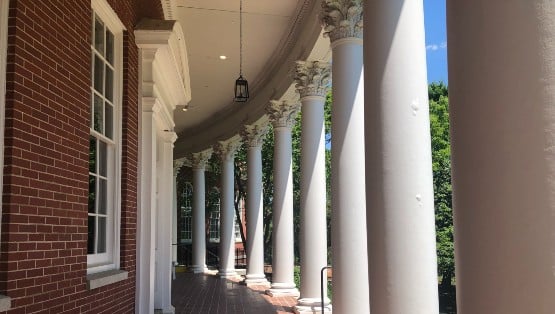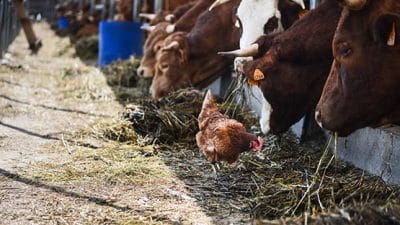
[email protected]
He started his general-election campaign here in June after sewing up the Democratic Party nomination, and he’s going to end it here late Monday night. Still want to quibble over how seriously Barack Obama is taking Virginia?
“What better way is there to showcase the importance of this state as far as the Democrats and the Obama campaign are concerned?” George Mason University political-science professor Mark Rozell said.
The Obama campaign has waged a battle for Virginia unlike any other presidential campaign in the past half-century. Virginia has not given its electoral votes to a Democrat since Lyndon Johnson in 1964, and as Cordel Faulk, a political analyst at the University of Virginia Center for Politics points out, LBJ “had to convince the people in this state that his opponent was going to blow up the world.” Obama’s approach has been much less in the way of histrionics, if not that much more in terms of the commitment of resources. The Democrat has opened in the area of 50 field offices in Virginia, including one in Staunton with individual staffers assigned to Staunton, Waynesboro and Augusta County, and blanketed the state with television ads and visits from surrogates including Kansas Gov. Kathleen Sebelius, New Mexico Gov. Bill Richardson and former NATO commander Gen. Wesley Clark. Oh, and don’t forget that stop from a senator from New York named Hillary Clinton tonight in Northern Virginia, and that tour of the Commonwealth last month that featured former president Bill Clinton.
“We’ve never seen a Democratic presidenial campaign with the kind of ground game that Barack Obama has,” Rozell said. “Part of it is simply that he can do it, that he has the resources to put up this kind of broad statewide effort. And where I think this campaign has been very wise is that he’s done a significant amount of outreach to areas of the state that previous Democratic candidates have ignored. I think he sees the merits of trying to break into McCain’s margins in some of the more heavily Republican-leaning areas of Virginia,” Rozell said.
No better case in point to that end exists than the Obama visit to Harrisonburg last week that drew 8,000 to a packed James Madison University Convocation Center and an additional 20,000 who couldn’t get inside the doors. Al Gore in 2000 and John Kerry in 2004 had a hard time breaking 30 percent in the Central Shenandoah Valley, but polling done by Survey USA, Virginia Commonwealth University and The Washington Post have Obama in the 40 to 45 percent range in the Valley, which when combined with strong polling in the Richmond and Hampton Roads metro areas and in particular Northern Virginia should spell Election Night success for Obama.
Of note here is that Obama has not tempered his message of change one iota in his campaigning in the Valley, in the face of the notion that the only Democrats who can hope to have success in the moderate conservative Valley are moderate conservatives like Mark Warner, the former governor and 2008 U.S. Senate candidate, who has historically done well in the Valley and is expected to ring up solid majorities here on Election Day. In his closing statement to Valley voters at JMU last week, Obama hit hardest on issues surrounding the struggling U.S. economy, touting his plan to rebuild the foundation of the American economic system by providing tax cuts to middle-class families to serve as a stimulus to economic activity both of a short-term and long-term nature and pointing to the obvious flaws of the strategy of Republican John McCain that is more of the same trickle-down economics of Ronald Reagan and recently George W. Bush that are at the basis of the current ongoing economic meltdown.
“It’s not change when John McCain wants to give a $700,000 tax cut to the average Fortune 500 CEO. It’s not change when John McCain wants to give $200 billion to the biggest corporations, or $4 billion to the oil companies, or $300 billion to the same Wall Street banks that got us into this mess in the first place. It’s not change when he comes up with a tax plan that doesn’t give a penny of tax relief to more than 100 million middle-class families. That’s not change,” Obama told the JMU rally.
“We have tried it John McCain’s way,” Obama said. “It’s not as if he’s come up with a bunch of new ideas. We’ve seen how it works. We’ve seen what happens over the last eight years, because his way is George Bush’s way. And over the last eight years, it just has not worked. Those are just the facts. And I don’t think anybody can dispute that.
“And deep down, even Sen. McCain knows that. Which is why his campaign said, and I quote, If we keep on talking about the economy, we’re going to lose. That’s why I keep talking about the economy,” Obama said.
That message has made Obama surprisingly competitive in Western and Southwest Virginia and Southside in large part due to the economic downturns particular to those regions. He was expected to be strong in NoVa and Richmond with their historic Democratic bases. The wild card all along has been Hampton Roads, which traditionally has had a slight conservative lean because of the influence of the military-industrial complex that dominates the region’s economy, but also has a sizable African-American population that makes up more than a third of the electorate regionwide.
Quentin Kidd, the chairman of the political-science department at Christopher Newport University in Norfolk, thinks the race in Virginia will come down to what happens in his neck of the woods on Election Day. “McCain looks pretty solidly up in the rural Central and Western part of Virginia. Richmond west, McCain looks pretty good. Obama looks solidly up in Richmond, Northern Virginia, Southside, which is small in terms of overall population but has a significant African-American population. What it comes down to is Hampton Roads,” Kidd said.
“African-Americans make up something like 35 percent of the electorate in Hampton Roads. Hampton, Norfolk, Newport News have pretty significant African-American populations, and the Obama people obviously want turnout to be as high as possible in those cities. And then you’ve got the McCain campaign, which is trying to energize its social-conservative base that also has a strong presence in Hampton Roads,” Kidd said.
“The big question mark is the young voters. Where are the 35 and under going to go, and to what extent do they turn out? And if they turn out at the level or rate at which the Obama campaign expects them to turn out, they decide who wins Virginia. And if they don’t, then it’s a fight between African-American turnout and white social-conservative turnout. It comes down to those basic categories,” Kidd said.
Which gets us back to where we started this rendering of the Virginia race. Get out the vote. “The Obama campaign has a terribly effective ground campaign, and the McCain campaign has a terrible ground campaign,” Cordel Faulk at the UVa. Center for Politics said. “McCain took Virginia for granted. He didn’t put enough money or time or energy into this state to win it, when the Obama campaign saw that they could win this, and they put in the time and money and energy that they would need. And people like Chris Saxman, who’s from the Valley, have tried everything they can, and they’ve soldiered through this, and they’ve made a noble effort, but the McCain campaign didn’t give them the support they needed,” Faulk said.
I know that among my many Republican friends the one sore spot that has rankled them all election season long is that the McCain Virginia team didn’t seem to be taking Virginia seriously until it was too late. The public pronouncements from people like Chris Saxman, a Staunton state legislator and the co-chair of McCain’s Virginia campaign, and others including former Virginia attorney general Jerry Kilgore, current Attorney General Bob McDonnell, sitting Lt. Gov. Bill Bolling and other McCain Virginia higherups was a riff on the line that “we’re going to win Virginia, because Republicans always win Virginia.” That seems to be their only hope at this point, that Virginia voters will change their minds late, and turn what has been a solid Obama lead for the past six weeks into a stunning come-from-behind McCain win in the Old Dominion.
“All indications are that this race is still tight in Virginia,” George Mason University political expert Stephen Farnsworth said. “The fact that the campaigns are here every day, never away for more than 48 hours, suggests that their internal poll numbers are a bit less one-sided than some of the publicly-released polls would indicate,” Farnsworth said.
“Oftentimes when you have a candidate who is relatively inexperienced, the polls will tighten closer to Election Day when that candidate has previously held a big lead. Voters just become hesitant about such candidates when the reality strikes home a little bit more closely when you get to Election Day,” GMU colleague Mark Rozell said.
George W. Bush had to deal with that same issue back in 2000 when he saw a five-point lead heading into the final weekend of that campaign evaporate into a popular-vote loss, though with the help of Katharine Harris and the conservative majority on the United States Supreme Court he was able to still win the presidency. Obama’s lead in the national polls seems to be strengthening in the final days, and when the final Mason-Dixon poll of Virginia of the campaign season has him up three points, and considering the usual two- to three-point Republican lean of Mason-Dixon polls, he’s still in the driver’s seat here until the polls open.
This could be history in the making, is what I’m saying, and Mark Rozell is there with me. “This is a historically significant shift should Obama win in Virginia,” Rozell said. “For many years, voters in Virginia have perceived the national Democratic Party as too far to the left, and when the Democratic Party in Virginia was doing well, it was because the party was seen as being more centrist or conservative. I don’t think we could have had this conservation 20 years ago – about a liberal Democratic candidate from Chicago having a chance of winning Virginia, but here we are today having exactly that conversation.”










